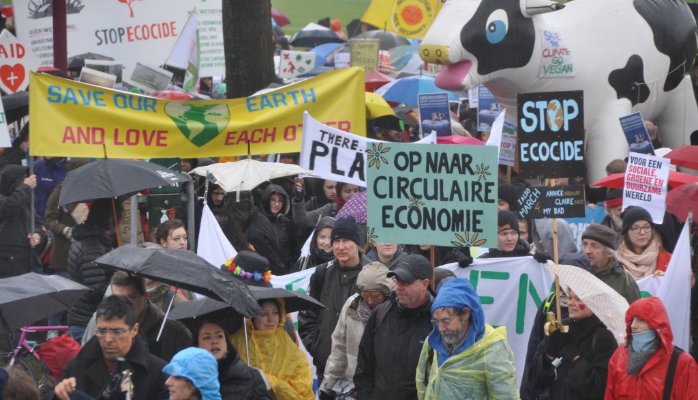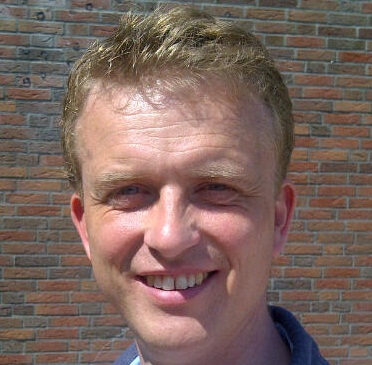| Today, hundreds of thousands of people in many cities around the world walk the Climate March. And for a reason. Not only the willingness is larger than before, as America and China are more outspoken to reduce greenhouse gass emissions. The Paris summit is also seen as one of the last resorts for making commitments for a transition away from a fossiel fuel economy towards a more sustainable one. |
Even to this day, people deny global warming and climate change due to human activity. But there is a huge consensus amongst climate scientists that the average global temperature is rising (0,85 degrees since 1880). The carbon dioxid concentrations show unprecedented and dangerously high levels. Recently it was revealed that a temperature rise of one degree instead of two degrees will cause serious problems.
As a matter of fact, we are already confronted with extreme heat and cold we haven't seen before. These extremes in weather - read droughts, sea level rise, hurricanes, floodings - already cause great negative impact on earths most vulnarable people in developing countries which urges those people to flee, as is the case in Africa or Bangladesh. It is believed that one of the causes for the Syrian conflict is drought and scarcity of water. And we'll face more human conflicts in the future due to nature. It costs corporates and societies billions of euros to adapt and mitigate risks from natural disasters. For example, the Netherlands will spend 12 billion in higher levees in the years coming.
Not taking action is irresponsible. Even so is to get stranded in a discussion with climate sceptici. Changing our behaviour and economy is most needed. Lowering greenhouse gass emissions alone however, even to the levels of 1990, is not enough. We have to make path for innovative solutions, sustainable energy and a circular economy. Other ways of living and working. An economy that goes hand in hand with ecology. That's what the people walking the Climate March call at. That's what needs to be the outcome of the Paris summit.
As a matter of fact, we are already confronted with extreme heat and cold we haven't seen before. These extremes in weather - read droughts, sea level rise, hurricanes, floodings - already cause great negative impact on earths most vulnarable people in developing countries which urges those people to flee, as is the case in Africa or Bangladesh. It is believed that one of the causes for the Syrian conflict is drought and scarcity of water. And we'll face more human conflicts in the future due to nature. It costs corporates and societies billions of euros to adapt and mitigate risks from natural disasters. For example, the Netherlands will spend 12 billion in higher levees in the years coming.
Not taking action is irresponsible. Even so is to get stranded in a discussion with climate sceptici. Changing our behaviour and economy is most needed. Lowering greenhouse gass emissions alone however, even to the levels of 1990, is not enough. We have to make path for innovative solutions, sustainable energy and a circular economy. Other ways of living and working. An economy that goes hand in hand with ecology. That's what the people walking the Climate March call at. That's what needs to be the outcome of the Paris summit.



 RSS Feed
RSS Feed
